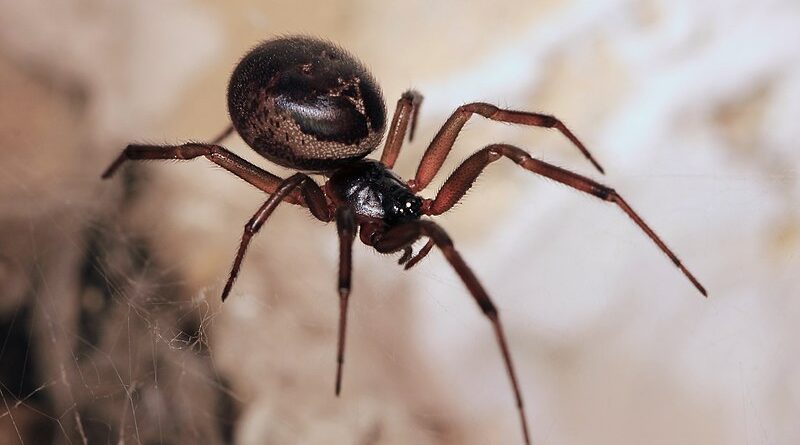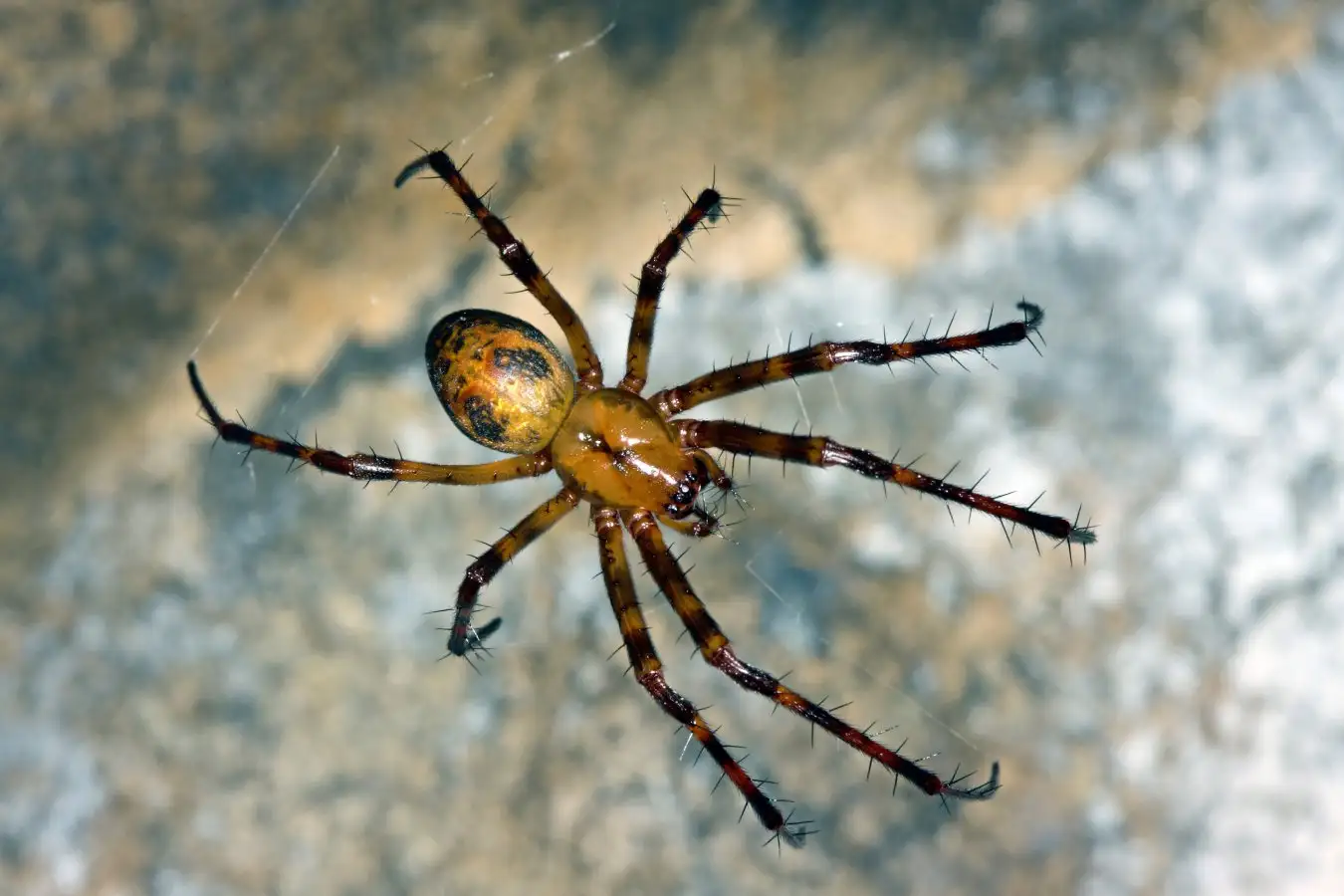When it comes to British spiders, the cave spider UK, also known as Meta menardi, holds a mysterious and often misunderstood reputation. Commonly hidden from human sight, this large orb-weaving spider lives in some of the UK’s darkest and dampest places. While its appearance may inspire unease, especially among arachnophobes, this species is largely harmless to humans and plays a valuable ecological role.
In recent years, with the rise in attention to species like the false widow spider or the wolf spider, there’s been growing curiosity—and concern—about native spiders. Among these, the cave spider UK stands out for its size, unique behaviour, and subterranean lifestyle. In this article, we’ll explore what makes this species so fascinating, where to find it, and clear up the myths surrounding its danger to humans.
What Is the Cave Spider UK?
The cave spider UK, or Meta menardi, is one of Britain’s largest native spiders. It belongs to the orb-weaving family, known for creating circular, often symmetrical webs. With a glossy dark brown or reddish-brown body and long, slender legs, it’s a striking sight for anyone lucky—or startled—enough to see one. Adult females are typically larger than males, with a body size of around 10–13mm and a leg span that can make them appear even more formidable.
Despite their intimidating appearance, these spiders are shy and nocturnal, often avoiding contact with humans. Unlike the more visible garden spider or jumping spider, the cave spider prefers complete darkness. It is classified as troglophilic, meaning it thrives in dark habitats such as caves, tunnels, abandoned mines, and even old basements. These adaptations have allowed the species to survive in highly specific, undisturbed environments across the UK.
Where to Find the Cave Spider in the UK
The cave spider UK is not something you’re likely to stumble upon in your shed or attic. These spiders are drawn to consistently dark, damp, and undisturbed places. You’ll most often find them in natural caves, old railway tunnels, disused mines, sewers, and occasionally in deep, cool cellars. Their chosen habitats are usually free of sunlight and rich in small insects for feeding.
Areas such as the Yorkshire Dales, parts of Wales, and abandoned mining regions in Derbyshire and Cornwall are hotspots for cave spider sightings. Although they are widespread across the UK, they remain rarely seen by the general public due to their secretive lifestyle. Wildlife enthusiasts, cavers, and researchers are the most likely people to encounter them. These spiders do not venture out of their environments unless disturbed, making them one of the more reclusive species in Britain.
Are Cave Spiders in the UK Dangerous?

Let’s address the question that most people ask first: Are cave spiders in the UK dangerous? The short answer is no. The cave spider UK is not harmful to humans. Although they possess venom like all spiders, theirs is designed to paralyse small insects, not humans. There are no recorded medical cases of serious bites from Meta menardi in the UK.
In fact, the likelihood of being bitten by one is incredibly low. Cave spiders are non-aggressive and will typically retreat or remain motionless when approached. Bites, if they do occur, are usually the result of extreme provocation or accidental handling. The symptoms are minor, akin to a small insect bite, and resolve without medical treatment. Compared to species like the false widow or black widow spider (the latter not native to the UK), Meta menardi poses almost no risk.
How to Identify a Cave Spider UK
Identifying the cave spider UK can be tricky if you’re not familiar with the country’s wide variety of arachnids. The key features to look for include its large size, shiny dark body, and relatively long legs. The abdomen is often oval-shaped and darker than the legs, sometimes with subtle patterning. They also spin a small, neat orb web, often tucked away in corners or crevices.
It’s important not to confuse this species with others such as the false widow spider, which has a more bulbous body and is found in urban homes, or the great raft spider, which is usually near water. The camel spider, often seen in viral videos, is not native to the UK and poses no local threat. Even the wolf spider, though often large and fast, behaves very differently and does not live in such dark, hidden places.
The Ecological Role of Cave Spiders in the UK
The cave spider UK is more than just a fascinating creature—it also plays an important role in the ecosystem. Living in total darkness, they help control insect populations by feeding on smaller invertebrates like woodlice, midges, and millipedes. In isolated underground habitats, their webs act like natural pest traps, keeping the balance of species in check.
They also serve as an indicator species for environmental health. Scientists studying cave ecology use populations of Meta menardi as a measure of ecosystem stability. If these spiders thrive, it suggests the cave or tunnel environment remains undisturbed and rich in biodiversity. Conservation of old structures and natural cave systems is essential not just for geology and heritage, but also for protecting species like the cave spider UK.
Misunderstood by Media and Pop Culture
Pop culture often distorts the public perception of spiders. The rise of films like Spider-Man: Across the Spider-Verse and Spider-Man: No Way Home has elevated the spider into myth and superstition. While entertaining, these depictions reinforce a mix of admiration and fear. Terms like “spider bite” bring to mind painful scenes from fiction rather than the reality of Britain’s gentle, reclusive cave-dwellers.
Other unrelated uses of the term, such as spider solitaire or spider plant, add to the confusion in web searches. However, it’s important to separate fact from fiction. The cave spider UK is not going to leap across the room like a jumping spider or chase you like something out of a horror film. It simply wants to be left alone in its dark, peaceful world.
Conclusion
The cave spider UK is an impressive yet misunderstood creature, hiding in the shadows of Britain’s caves, tunnels, and cellars. With its large size and unique appearance, it may evoke fear in some, but the reality is far from frightening. Harmless, reclusive, and ecologically valuable, the Meta menardi spider deserves our respect and curiosity rather than panic or avoidance.
By learning more about this species and understanding its role in our ecosystem, we can begin to shift public perception. Far from being a danger, the cave spider UK is a symbol of natural adaptation and resilience—surviving in the forgotten corners of our landscapes, quietly playing its part in the balance of nature.
Frequently Asked Questions
Are cave spiders in the UK venomous or poisonous?
They are venomous to their prey but pose no danger to humans. Bites are extremely rare and not medically significant.
Where are cave spiders most commonly found in the UK?
They are found in caves, mines, old tunnels, and dark, damp structures throughout the UK, particularly in rural areas.
How can I identify a cave spider?
Look for a dark brown, glossy body with long legs and an oval-shaped abdomen. They spin small orb webs in dark places.
Is the cave spider the largest spider in the UK?
It’s among the largest, though not the absolute largest. The giant house spider and raft spider may rival it in size.
Should I be afraid of a cave spider in my home?
They are not commonly found in homes. If you see one, it’s likely lost or passing through. There’s no need to be alarmed.
You may also read: Audi Aberdeen – Your Destination for New & Used Audi Cars from John Clark Dealer


